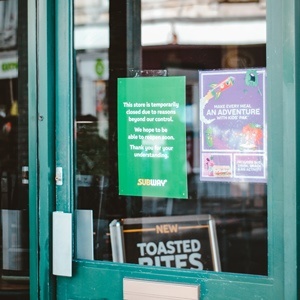
On Monday, 16 March, Dutch Prime Minister Mark Rutte announced the nation’s strategy to implement "herd immunity" to fight the new coronavirus. Similarly, at a press conference, British Prime Minister, Boris Johnson said they would adopt the same out-of-the-box strategy to mitigate the virus, adding that schools would not be closed – despite encouragement of physical distancing – while they deal with “the worst public health crisis in a generation”.
Although the Dutch and British governments later imposed stricter physical distancing restrictions and closed schools, gyms, restaurants and pubs, their introduction of the herd immunity tactic was met with alarm and criticism, from both the World Health Organization (WHO) as well as medical experts. But what exactly is herd immunity, and can it be effective?
Herd immunity: infecting a majority of the population
Simply put, herd immunity, also referred to as "community immunity" is a form of protection that is aimed to boost the immunity of the community. Generally, there are two ways to build immunity against infection: through the natural process of catching it, then building an immunity against it, and by vaccination.
Once enough people in a population have become infected with the virus, or have received a vaccination, the virus can no longer spread from person to person as easily. This then means that those who haven't had the infection or can't have the vaccine (either because they are too old, too young or have weak immune systems) are more protected.
For this to be effective, in the UK’s instance, around 60% of people would have to become infected with the Covid-19 virus, recover, and end up with immunity in order to create a herd immunity, stated the UK's Chief Scientific Adviser, Patrick Vallance. However, both countries’ reliance on this approach goes against global recommendations, for certain reasons.
WHO and medical experts’ stance
Considering there is no vaccine for Covid-19, this means, as mentioned above, a large group of a country’s population would have to get sick with the Covid-19 virus. As a result, hospitals may become overburdened with patients and healthcare systems may not be able to cope.
Many medical experts also emphasise that herd immunity only works if the majority of people in the population are vaccinated.
In an interview with BBC Radio 4, Margaret Harris of the WHO cautioned that not enough is known about this new virus to justify the herd immunity strategy: “We don’t know enough about the science of the virus, it hasn’t been in our population long enough for us to know what it does in immunological terms,” she said. “We can talk theories, but at the moment we are really facing a situation where we have got to look at action.”
Richard Horton, editor of the prominent British medical journal The Lancet, also tweeted that the British government is “playing roulette with the public”.
What’s the verdict?
When faced with a pandemic as dangerous as Covid-19, Forbes writer Joshua Cohen interestingly writes that a huge concern with the herd immunity approach is that the disease has either killed or caused severe illness in a number of people under the age of 60 – some of whom had no serious underlying health conditions.
More than this, Cohen argues that the strategy "suffers from a logistical near impossibility – the ability to separate older adults from potentially contagious younger people".
As a previous article by The Conversation explains, a vaccine would certainly be beneficial, and it will eventually arrive. In the interim, these kinds of pandemics can be prevented through the upholding of precautionary measures in every country’s population, such as physical distancing and strict hygiene.
In an article for Al Jazeera, Dr Sara Kayat, practising NHS and private GP in the UK, explains that if the approach of going "in and out" through physical distancing is controlled throughout the year, healthcare systems may then be able to cope better, as the virus will continue to spread – but it will happen at a slower rate.
READ | Coronavirus in SA: All the confirmed cases
READ | Coronavirus morning update: SA deaths now 5, but 50 recoveries in CT, and lifesaving lockdown
READ | Coronavirus: Why the 14-day quarantine period?
Image: Hello I'm Nik on Unsplash




 Publications
Publications
 Partners
Partners















